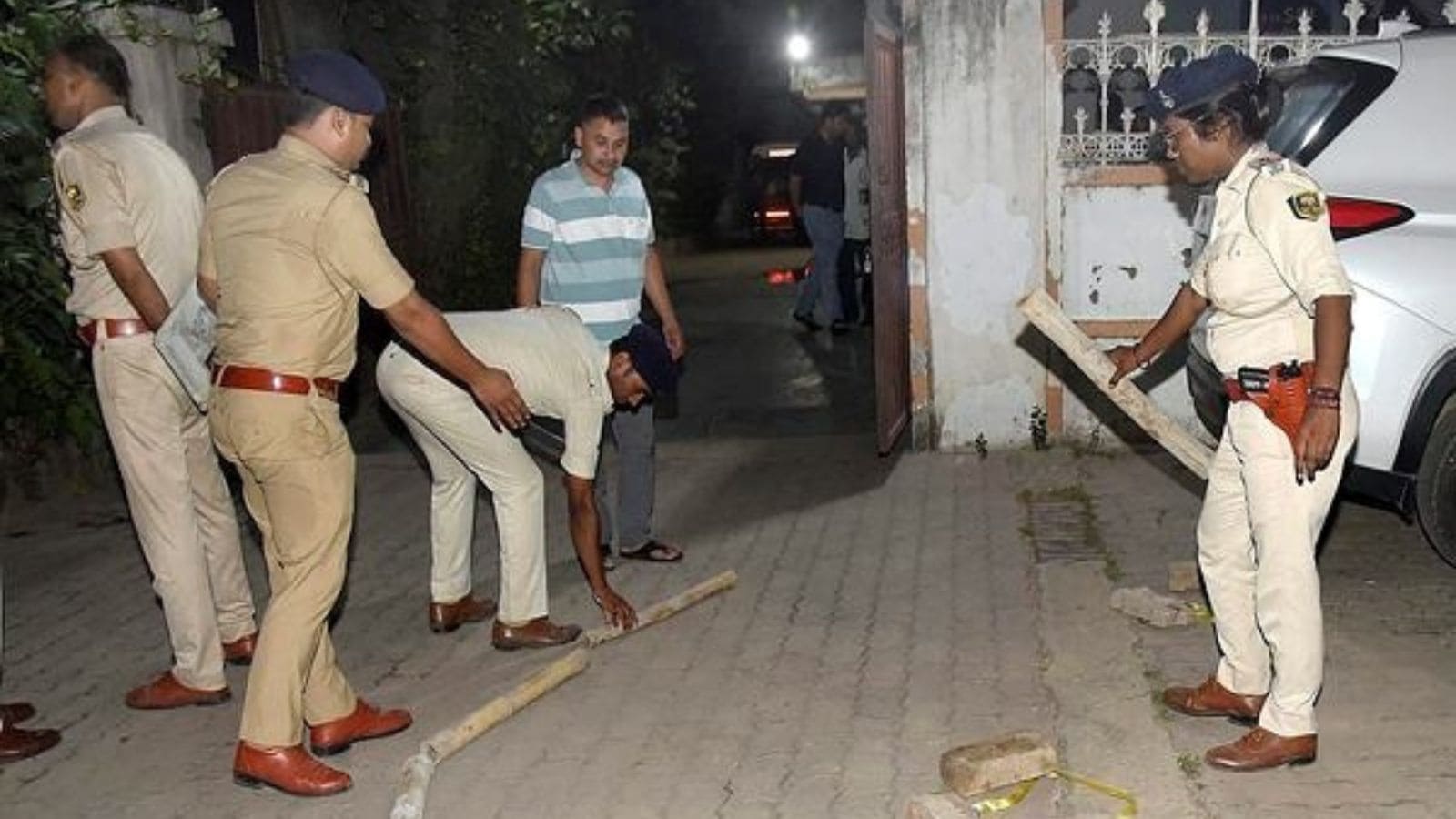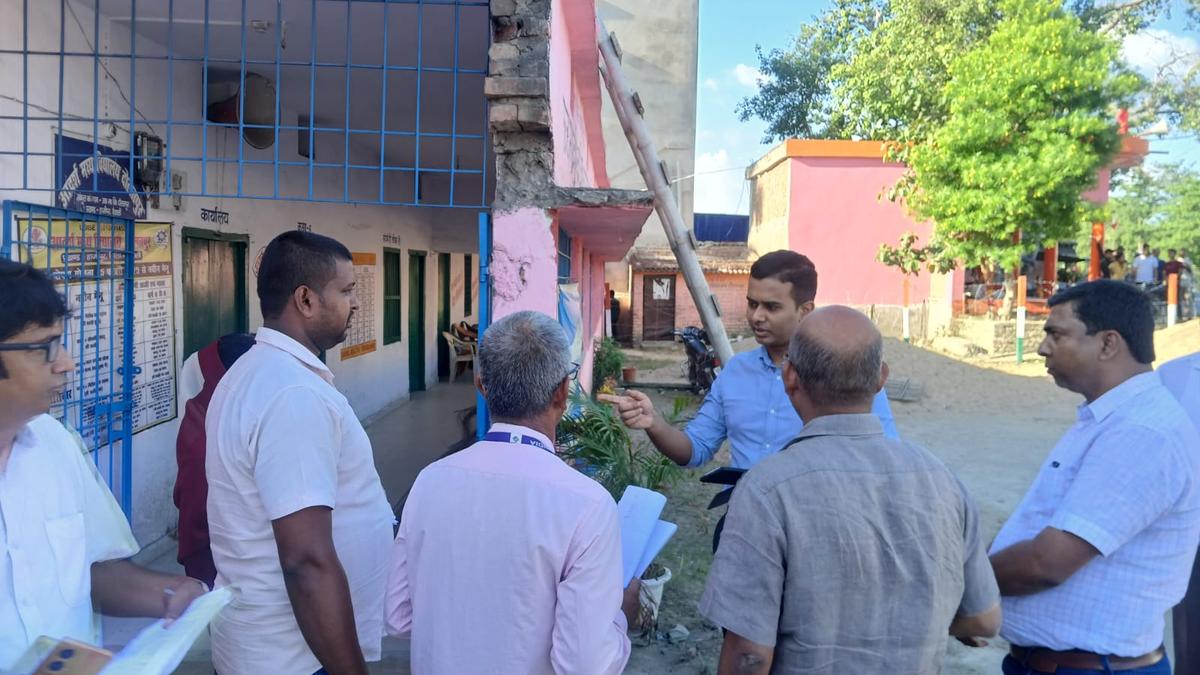ARTICLE AD BOX
Last Updated:July 07, 2025, 18:43 IST
The Supreme Court ruled that individuals cannot seek legal relief for consequences of their own unlawful acts

The case revolved around whether a 1971 land conveyance which was executed by the plaintiff in favour of a relative and was valid in law. PTI File)
The Supreme Court has ruled that courts cannot extend relief to individuals who seek to benefit from their own unlawful acts. Emphasising that law does not reward a person for his or her own wrongdoing, the Court refused to assist a litigant who asked the judiciary to nullify his own unlawful sale of land and simultaneously grant him relief based on that illegality.
A bench of Justices Sudhanshu Dhulia and Ahsanuddin Amanullah made these observations while dismissing an appeal filed by Machhindranath S/o Kundlik Tarade, challenging a 2019 judgment of the Bombay High Court. The High Court had upheld a single-judge decision that cancelled a trial court’s order granting him possession of ancestral land, ruling that the transaction he sought to undo had resulted from his own missteps.
The case revolved around whether a 1971 land conveyance which was executed by the plaintiff in favour of a relative and was valid in law, given that the land had already been pledged as security for a cooperative society loan. The land in question, located in Ahmednagar, Maharashtra, measured approximately 15 acres and 17 gunthas and was ancestral property belonging to the plaintiff, Machhindranath.
Facing financial distress, the plaintiff had taken a loan from Kendal Bk Vividh Karyakari Seva Sahakari Sanstha Ltd, creating a charge on the property to secure repayment by November 9, 1971. Before repaying that loan, he approached his nephew (also his son-in-law and the first defendant) for a personal loan of ₹5,000. In return, he executed a registered sale deed on November 2, 1971, transferring ownership of the land to the defendant.
Later, the plaintiff challenged that sale, claiming it was not an actual sale but a conditional arrangement. The trial court sided with him, declaring the deed void under Section 48 of the Maharashtra Co-operative Societies Act, 1960, which restricts alienation of property under cooperative loan charge. But the High Court reversed that finding, a decision now upheld by the Supreme Court.
“The law cannot and does not reward a person for his own wrongs," the Court declared, cautioning against any judicial endorsement of “perpetuation of illegality." The Court said it was impermissible for a litigant to ask for a relief that is rooted in an act they themselves committed in violation of law.
This case, the Court noted, presented a peculiar scenario: the plaintiff not only admitted to having executed the sale deed in violation of a statutory restriction, but also sought the court’s assistance to annul it without the aggrieved party (the lending society) ever initiating action. The Court rejected this as an abuse of legal process.
Section 48 of the Maharashtra Co-operative Societies Act provides that a borrower-member cannot alienate property charged to a cooperative society during the currency of the loan. Subsection (e) states that any such transaction would be void.
However, the Supreme Court interpreted this “void" clause as directory, not mandatory, meaning that such a transaction is voidable, not automatically invalid. The Court explained that only the society in whose favour the charge exists has the right to challenge such a transaction.
“In the absence of the society initiating proceedings to nullify the sale, the transaction remains valid in the eyes of the law," the bench ruled. Therefore, the plaintiff who was the original violator could not come to court asking that the sale be undone.
Crucially, the society in question never approached any authority to challenge the sale deed or enforce its charge over the land. There was no complaint, legal notice, or litigation initiated by the society.
“The right to challenge such a transaction rests solely with the society that granted the loan. It is not open to the borrower who breached the statutory terms to claim the sale was void, when the society itself has not objected," the Court reasoned.
Further weakening the plaintiff’s case, the Court pointed out that in the very sale deed executed in 1971, he declared that the land was free from all encumbrances. This undermined his later claim that the sale was only a conditional transaction meant to secure repayment.
“If the land was declared unencumbered, then the argument that the sale was conditional collapses on its own weight," the Court observed.
Affirming the Bombay High Court’s decision, the Supreme Court held that no relief could be granted to the plaintiff. It directed that the registry prepare a decree sheet to finalise the matter.

Sanya Talwar, Editor at Lawbeat, has been heading the organisation since its inception. After practising in courts for over four years, she discovered her affinity for legal journalism. She has worked previousl...Read More
Sanya Talwar, Editor at Lawbeat, has been heading the organisation since its inception. After practising in courts for over four years, she discovered her affinity for legal journalism. She has worked previousl...
Read More
- Location :
- First Published:
News india You Can’t Undo Your Own Illegal Act, Says Supreme Court



.png)
.png)
.png)
















 4 hours ago
3
4 hours ago
3









 English (US) ·
English (US) ·